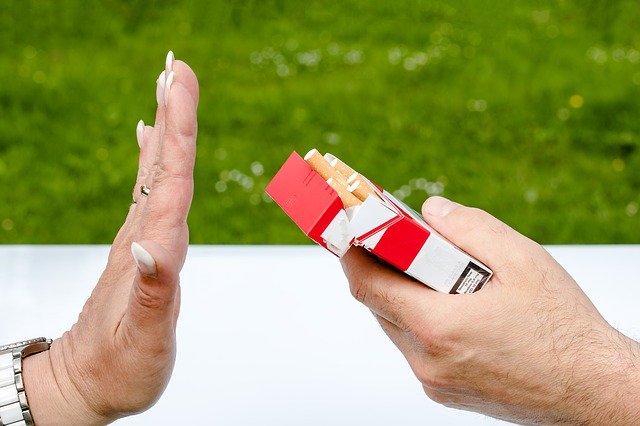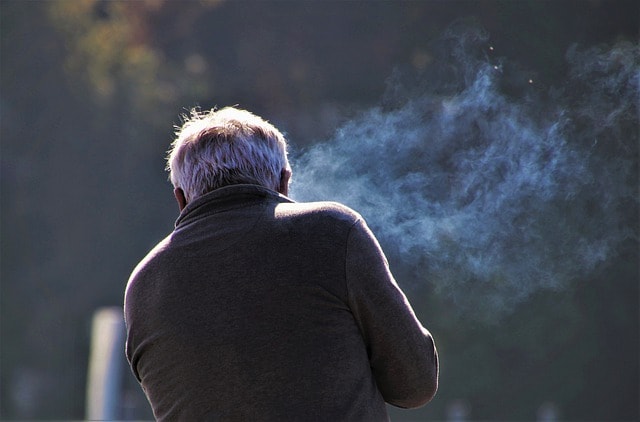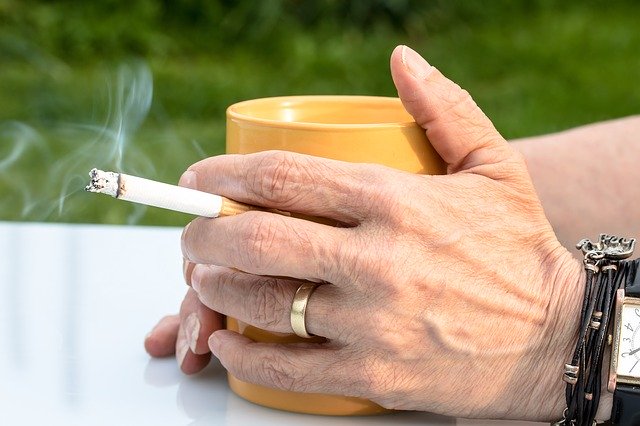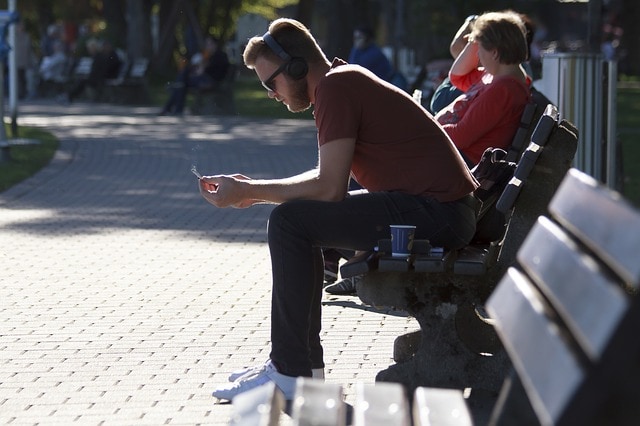If you’ve landed here, you already know that smoking is bad for you and are considering your options to quit smoking. While you’ve probably already read a few articles like this, by doing your research thoroughly you are setting yourself up for success.
In this article, we’re going to cover the things most smokers say that prevent them from quitting, and we tell you how to get over them.

I never manage to beat the withdrawal symptoms and always end up going back to smoking.
When you stop smoking, your body begins to work to remove toxins and clear the nicotine and chemicals from your system. Over the years of smoking, you have fed an addiction to nicotine and some of the chemicals in the cigarette smoke so it is natural that withdrawal will be difficult.
When you decide to quit smoking, think about the withdrawal as part of the process, as a cleansing ritual that you have to go through to come out on the other side. Quitting can sometimes be a long process – if you give in to temptation and smoke “just one”, get back on the no-smoking path the next day.
It’s too late for me. I’ve smoked for decades now.
Regardless of how long you have been smoking, it is never too late to stop. If you give up after decades, you’ll start to feel benefits from the first nicotine-free day, although you might be so focused on the cravings that you don’t appreciate the benefits.

I’ve read the conspiracy theories and I don’t think smoking is as dangerous as it’s made out to be.
Regardless of the agendas of pharmaceutical companies and tobacco lobbies, cigarette smoke contains over 7000 chemicals, including over 70 known carcinogens.
All these chemicals help to convey nicotine into your system. Nicotine works differently on everyone but its addictiveness is non-debatable. Anyone who smokes for some time is likely to develop physical and mental cravings for nicotine. While it is super addictive and quitting is hard, it is not impossible.
I can avoid smoking when I’m at home, but when I socialize, I find it hard to stop myself from lighting up.
Over the years that you smoked, you’ve internalized many triggers that make you feel like smoking. For a smoker, socializing may involve these triggers:
- Stress/awkwardness with social interactions, especially for introverts: Smoking gives you “something to do with your hands” and may be more of a social crutch.
- Post-meal cravings: After a meal or a dessert, many smokers reach for a cigarette to end the meal.
- Alcohol or coffee: Alcohol and coffee are big triggers for smokers and socializing makes it hard to have a few beers or a cappuccino without a smoke.
- Hanging out with fellow smokers: Smokers usually hang out with other smokers when they socialize and it will be difficult to go out and not smoke while the others do.

It is understandable and natural that these occasions are difficult for someone who has kicked the butt. In the months after your last cigarette, it helps to identify these triggers and avoid them.
Here are some alternatives
- Spend time with friends in restaurants that do not allow smoking.
- Find a new activity to do instead of meeting up for drinks or a meal. Try going for a walk or signing up for a group class. You’ll be able to keep busy and avoid smoking and the activity will be good for you.
- Avoid drinking in your favourite pubs or bars if you can. The associations are too strong and will be difficult to overcome.
- Choose to hang out more with people who do not smoke so you can see that enjoying yourself doesn’t have to include smoking.
- Switch to green tea, lemonade or health juices instead of coffee to give your body some detoxing help and avoid the trigger of caffeine.
- Go for a walk after a meal instead of lighting up.
While it might seem nearly impossible, tens of thousands of people have given up smoking. It is difficult but feasible.
I’ve tried before but I keep coming back to smoking. What’s the point?
The point is that you kept trying. It doesn’t matter if you slip up, as long as you get back up and try again. Quitting smoking might be the hardest thing you’ve done and it will take time to get it right. Some people can quit in one go, and for some, it takes years.
It’s never too late to give up cigarettes. Your body will thank you for any break that you can give it. Just 12 short hours after you stop smoking, your body has eliminated all traces of nicotine. Within 24 hours, the raised carbon dioxide levels in your blood fall to normal, which makes your oxygen intake better.
As the days go by, you’ll notice that you feel fresher and more alert throughout the day without all those chemicals in your blood. You’ll need less sleep and will be able to taste and smell better. Your body will make it worth your while to quit smoking.
With time, you’ll be free of the physical and mental cravings. You’ll find that you have more time, energy and money to do the things you love.

I’ve never quit smoking before and I’m scared because it sounds too difficult.
What makes it so tough to quit smoking is the fact that it is both a mental and a physical addiction. You will have to fight the physical craving for nicotine as well as the habits and associations that have developed in your years of smoking. This means you can expect to experience withdrawal symptoms, although different people report different symptoms.
The most common withdrawal symptoms when you quit smoking are:
- Excessive irritability and crankiness
- A physical craving, where it feels like your body ‘needs’ nicotine
- Feeling hungry more often than usual
- Waking up more frequently at night or sleeping much less than usual
- Headaches
- Depression or anxiety
- Bad breath or an upset stomach
The symptoms are likely to feel the most intense for the first few days after you stop but will fade with time.
I really want to quit but I don’t know how to fight the temptation.
Try the technique of the 4 Ds to cope with the urge to smoke:
Delay the urge to smoke as far as possible: Tell yourself that you won’t give in today but if you feel like it tomorrow, you will let yourself smoke. Tomorrow you’ll tell yourself the same thing. The symptoms will fade over time.
Deep and slow breathing: Mindful breathing is effective at reducing cravings. When you feel tempted to light up, settle down and take 20 deep breaths instead. Focus on how much easier it is to get a lungful of fresh air. If you’d like to learn how to meditate, Avaana can help you find a trainer near you.
Drink water: Add lemon or mint to a big bottle of water to make it interesting and take small sips throughout the day. You’re less likely to experience cravings if you have something to eat or drink.
Do something else entirely: Take your mind off the cravings by going for a walk, cleaning out a cupboard, going out for groceries, or working out. Activity-based ideas work well because they keep your hands busy and give you a task to focus on. If you’d like to join a group fitness class, Avaana can help you find one.
I’ve tried to quit smoking but nothing helps. I don’t know what else to do.
If you’ve tried before, you know exactly what led to you picking up the next cigarette. That is powerful knowledge. The next time you quit, make sure you’re aware of that particular trap and do what you can to avoid it.

Here are some other tips:
Identify the triggers
Whether you’re a current smoker or have given up smoking before and relapsed, you know your triggers. It is best to completely avoid your triggers rather than spend energy trying to fend them off. Make a list and write down how you will avoid them.
Change your routine
Every smoker has routines associated with smoking. For example, if you wake up and grab a smoke with your coffee, change that for some time until you get used to it. Go for a walk in the garden instead and sip on a green tea. By breaking associations between smoking and your life, it is easier to drop the habit of smoking.
Consider replacement therapy
If you don’t have much faith in quitting cold turkey, you might benefit from using nicotine replacement aids like gums, patches, or lozenges. Talk to your doctor before beginning any replacement therapy, especially if you have pre-existing health conditions.
Find your community online
Before your quit date, spend some time reading up online and looking for a website you like. This helps you prepare for the big step you’re about to take and gives you all the support you need. One of the best resources available in Australia is the Quit Now website. It has plenty of information and tools to provide support, as well as ‘My QuitBuddy’, an interactive app with tips, motivations and reminders to help quit.
Consult your family doctor
This is particularly helpful if you are a heavy smoker or have prevailing health conditions. Research has proven that seeking professional help from a doctor, nurse or pharmacist and using a combination of counselling and medication is the most effective way to kick the butt. For unaided attempts, the success rate hovers around 5% but with the support of medical professionals, your chance of success shoots up to 25%.
The most important thing to remember is that you are not alone and that there are plenty of tools to help you get through and emerge on the other side.



